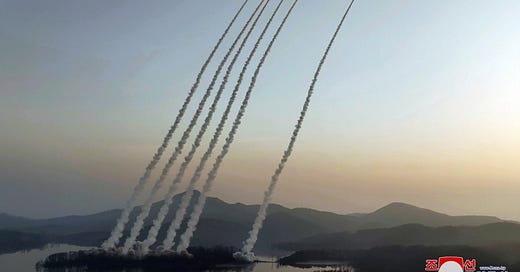Dr. Seong-Chang Cheong: The Case for South Korean Nuclearization, Part III
How South Korea’s Nuclearization Will Actually Strengthen U.S.-ROK Ties
Introduction by Mitch Blatt: Dr. Seong-Chang Cheong, the Director of Department of Reunification Strategy Studies at the Sejong Institute, has been a Lecturer at Seoul National University, a Policy Advisor for the Ministry of Unification, the Joint Chiefs of Staff, and the Office of National Security, and a Guest Commentator for the Korean Broadcasting …
Keep reading with a 7-day free trial
Subscribe to Korean Policy and Culture: The US-Korea Policy Project to keep reading this post and get 7 days of free access to the full post archives.



